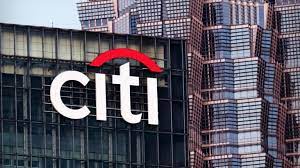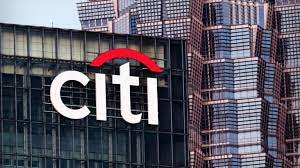
After a string of closures alarmed investors and exacerbated unrest in the world's financial markets, Citigroup Inc. CEO Jane Fraser expressed confidence in American banks on Wednesday.
"The banking system is pretty sound," and large and regional banks are well-capitalized, Fraser told the Economic Club of Washington D.C. on Wednesday.
"This is not a credit crisis. This is a situation where it's a few banks that have some problems, and it's better to make sure that we nip that in the bud," she said.
Two American banks failed in the last two weeks, Credit Suisse Group AG was acquired by Swiss rival UBS Group AG, and the largest American lenders decided to deposit $30 billion in troubled First Republic Bank. Since the uproar started, Fraser's public remarks were among the first made by the CEO of a big bank.
One of the 11 huge banks that last week offered First Republic a lifeline in an effort to buy it time to restructure was Citi, the fourth-largest lender in the United States.
Despite having no interest in purchasing First Republic, Citi provided $5 billion to the lender as a show of support and anticipates repayment, according to Fraser.
According to her, the decision to support First Republic represented an extraordinary display of cooperation among titans of the banking industry, who are usually ferocious rivals.
"We usually try and kill each other in different deals that we're trying to do," Fraser said. "But in this instance, this is one where we're in a strong position, we want to stop what could have been a problem."
The rescue efforts on Wednesday couldn't stop First Republic's stock from falling 15%.
In other news, Fraser said it was hardly surprising that rival UBS acquired struggling lender Credit Suisse on Sunday.
"I don't think anyone was falling off their chair that Credit Suisse ultimately ended up where it did, it was really a question of time," Fraser said. "It's been a troubled institution for a long time," she said, citing management instability and various crises.
Fraser, who was born in Scotland, also discussed her life and career in-depth with David Rubenstein, the co-founder of Carlyle Group Inc. She is the first woman to head a major Wall Street bank, and she enjoys traveling. She has two children who are in college.
Fraser, an only child of an accountant for a father, caddied as a teenager before enrolling at Cambridge University and Harvard Management School. Prior to taking over as CEO two years ago, Fraser had a number of executive positions at Citi before beginning her career at Goldman Sachs Group Inc.
Fraser commended US authorities for acting quickly to prevent the bank runs that resulted in the failure of Silicon Valley Bank and Signature Bank earlier this month from becoming more widespread.
Invoking "systemic risk exceptions" allowed the Treasury, Federal Reserve, and Federal Deposit Insurance Corporation to guarantee billions of dollars in uninsured customer funds.
"It's very important to protect depositors," Fraser said. "The banking system everywhere around the world depends on confidence, and that confidence has to be in the safety and security of deposits," she said.
(Source:www.investing.com)
"The banking system is pretty sound," and large and regional banks are well-capitalized, Fraser told the Economic Club of Washington D.C. on Wednesday.
"This is not a credit crisis. This is a situation where it's a few banks that have some problems, and it's better to make sure that we nip that in the bud," she said.
Two American banks failed in the last two weeks, Credit Suisse Group AG was acquired by Swiss rival UBS Group AG, and the largest American lenders decided to deposit $30 billion in troubled First Republic Bank. Since the uproar started, Fraser's public remarks were among the first made by the CEO of a big bank.
One of the 11 huge banks that last week offered First Republic a lifeline in an effort to buy it time to restructure was Citi, the fourth-largest lender in the United States.
Despite having no interest in purchasing First Republic, Citi provided $5 billion to the lender as a show of support and anticipates repayment, according to Fraser.
According to her, the decision to support First Republic represented an extraordinary display of cooperation among titans of the banking industry, who are usually ferocious rivals.
"We usually try and kill each other in different deals that we're trying to do," Fraser said. "But in this instance, this is one where we're in a strong position, we want to stop what could have been a problem."
The rescue efforts on Wednesday couldn't stop First Republic's stock from falling 15%.
In other news, Fraser said it was hardly surprising that rival UBS acquired struggling lender Credit Suisse on Sunday.
"I don't think anyone was falling off their chair that Credit Suisse ultimately ended up where it did, it was really a question of time," Fraser said. "It's been a troubled institution for a long time," she said, citing management instability and various crises.
Fraser, who was born in Scotland, also discussed her life and career in-depth with David Rubenstein, the co-founder of Carlyle Group Inc. She is the first woman to head a major Wall Street bank, and she enjoys traveling. She has two children who are in college.
Fraser, an only child of an accountant for a father, caddied as a teenager before enrolling at Cambridge University and Harvard Management School. Prior to taking over as CEO two years ago, Fraser had a number of executive positions at Citi before beginning her career at Goldman Sachs Group Inc.
Fraser commended US authorities for acting quickly to prevent the bank runs that resulted in the failure of Silicon Valley Bank and Signature Bank earlier this month from becoming more widespread.
Invoking "systemic risk exceptions" allowed the Treasury, Federal Reserve, and Federal Deposit Insurance Corporation to guarantee billions of dollars in uninsured customer funds.
"It's very important to protect depositors," Fraser said. "The banking system everywhere around the world depends on confidence, and that confidence has to be in the safety and security of deposits," she said.
(Source:www.investing.com)





